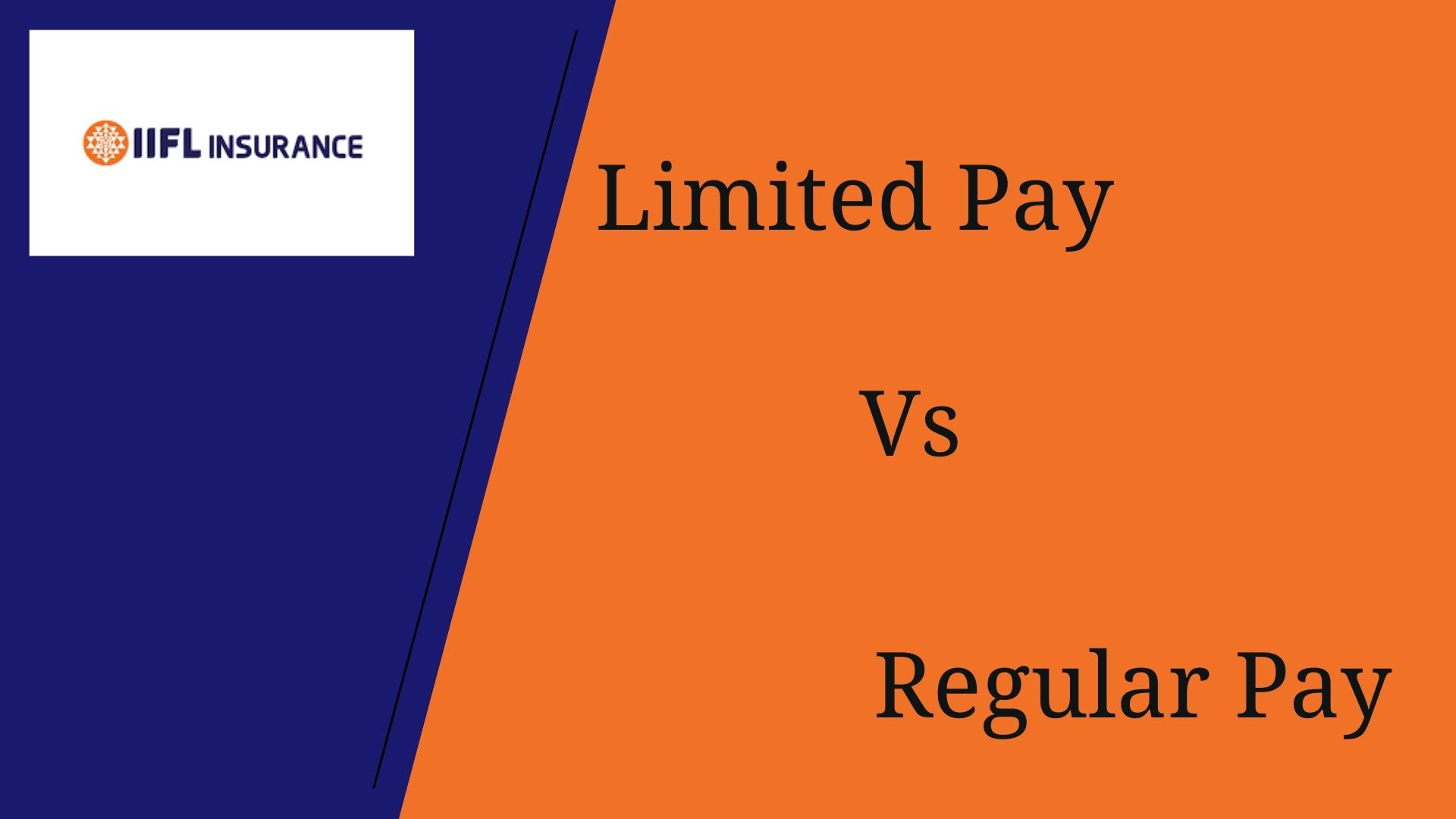Limited Pay vs Regular Pay: Which One To Choose?
In a world full of uncertainty and risk, it is crucial to be prudent. The first step in the right direction is getting insured. One of the main deciding factors while selecting an insurance policy is the premium to be paid. Not having the correct information can make this choice difficult. There are two options available – Limited Pay and Regular Pay. This choice differs from person to person, depending on their circumstances. Before we take a look at what suits you best, let us understand the two options in detail.
What is Regular Pay?
Suppose you opt for regular pay when purchasing your policy. In this scenario, you will be bound to pay the insurance premium throughout the term of the policy. The amount is spread over many years, which will make the outflow the least for every premium.
What is Limited Pay?
If you choose the limited pay option, you can pay the amount in a smaller defined period. This way, the burden of payment is over in the initial years, while insurance coverage is provided throughout.
What are the key differences between Limited Pay vs Regular Pay?
Many factors help us differentiate between the two options. While the final choice depends on specific circumstances, some of the general points include:
1. Payment duration
In a policy with regular pay, the premium is paid during the entire term of the policy. Due to this, the payouts may even go beyond the age of retirement. It is a long-term commitment and turns out to be relatively complex. As for limited pay, the premium is paid within a pre-specified period. The duration is lesser than the entire term of the policy. There is also no complexity of paying multiple times a year.
2. Premium amount
The amount of premium keeps increasing with age in a regular pay plan. This is because the advance payment is determined by a discounting factor, based on a long-term rate. This implies that for a limited period plan, the total premium paid is comparatively lower. Moreover, it also does not increase with age. Further, you can save up to 55% on premiums because of early payment with the limited pay plan.
3. Tax benefits
While filing your tax returns, you must have noticed the provision for deductions under section 80C. If not, let us break it down for you. Over here, you can avail deduction in your overall tax liability based on your investments. In a limited pay plan, the deduction amount can be maximised. This is because of a higher premium amount. However, under a regular pay plan, tax benefits are spread across several years. This only allows for limited deductions under section 80C.
4. Financial burden
As we have stated before, under limited pay, the premium is paid in a shorter period. This inflicts a much higher strain on the pocket. However, the financial burden, in this case, is limited to a specified period. If you opt for the regular pay option, the burden gets distributed over the years. This makes the strain of payment more manageable, but the burden sticks for a longer time.
5. Lapse of policy
Lapse of policy means its termination due to non-payment of premium. In a regular pay option, since the premiums have to be paid for such a long duration, the chances of lapse are higher. Moreover, no benefit is provided to the policyholder due to the evasion of premium. In a limited pay option, the chance of lapse is lower because of the shorter duration. The policyholder also incurs no loss due to non-payment, as he can easily surrender the policy.
What suits you more?
Now that you have understood how the two differ, it is time to analyse what suits you more. If you are a salaried individual with a steady flow of income, regular pay would suit you more. There would be less worry about future payments. On the other hand, if your nature of work involves fluctuating streams of income (like commissions), limited pay is preferable.
If you are working under uncertain conditions, a limited plan ensures faster completion of payments and subsequently more security. These include jobs such as that of army personnel and mine workers.
If you plan on retiring early, a limited pay option gives you the benefit of making all payments while you are working. This way you can ensure a stress-free and secure retired life. However, if you are far from the retirement age, you have a longer period to spread the premiums across. This makes the plan more affordable.
After examining the various pros and cons, you can now make an informed decision. As we have seen, choosing among both the options depends on your conditions and future choices. So plan your upcoming years, and decide what provides maximum benefit to you.






























